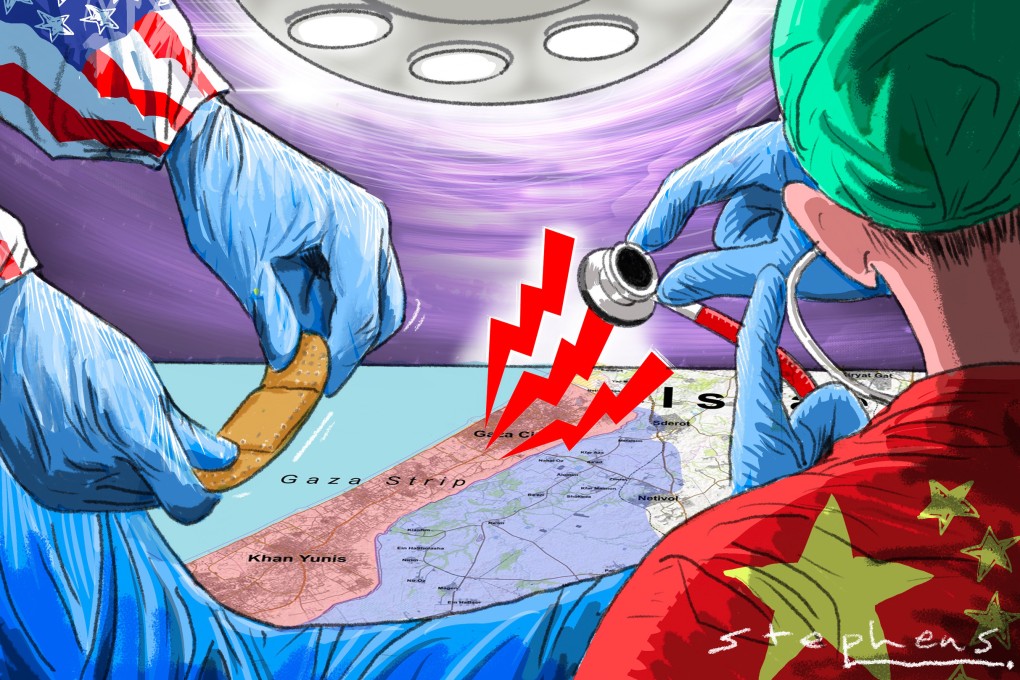Opinion | For an Israel-Gaza remedy, take a leaf from Chinese medical thinking
- Chinese medicine treats the cause, not the symptoms. The US’ response to the war is dictated by its election cycle, and risks inflaming all Muslims
- In contrast, China plays the long game and its approach is to work with multipolar vital forces to maintain balance

In simple terms, an illness occurs when the body’s qi – the complementary vital forces of yin and yang – is in disharmony, and this imbalance shows up as symptoms. To be effective, a Chinese remedy treats the cause, not the symptoms, and this is achieved by restoring the harmony and balance of the vital forces.
Chinese medicine may sound unscientific or even irrational, but it is actually well chronicled in data and research. Inscriptions about illness on bones date back to the Shang dynasty in the second millennium BC, and the earliest medical text was compiled during the Warring States period (475-221 BC).
The symptoms are unambiguous, and they all point to an epic travesty of humanity. Yet, the diagnoses and remedies proposed by the US and China are profoundly different.
